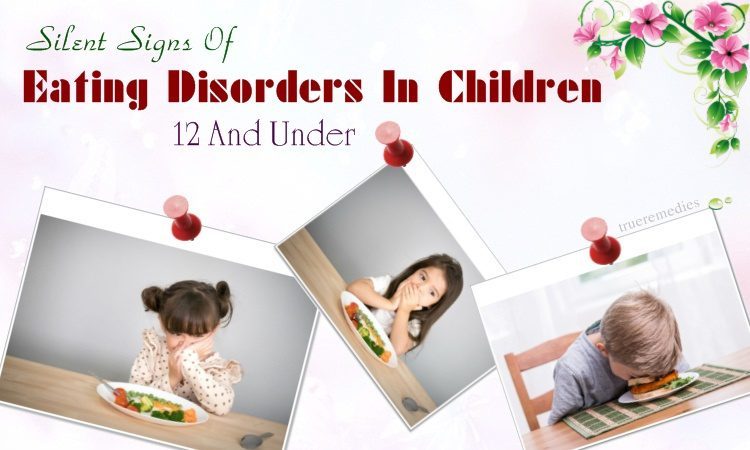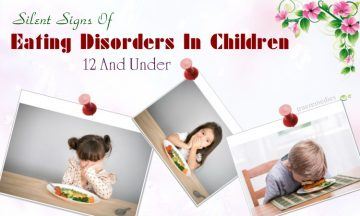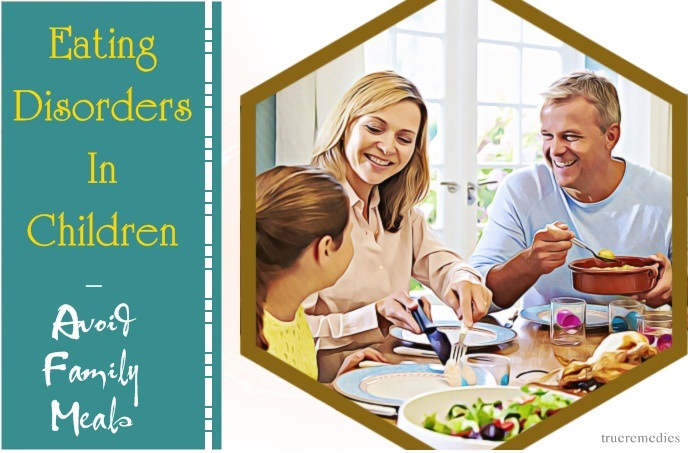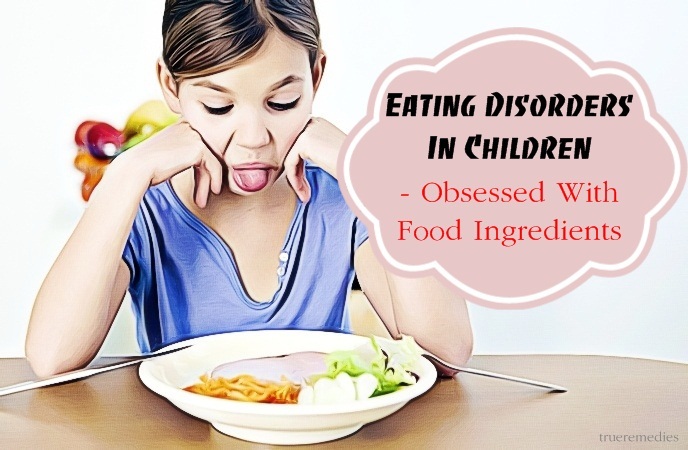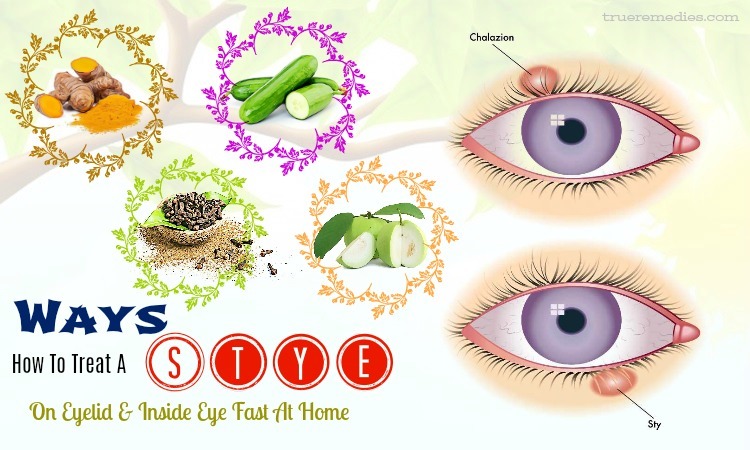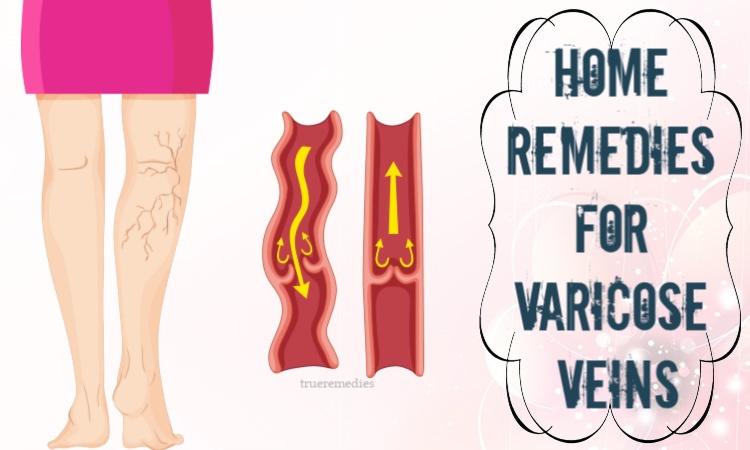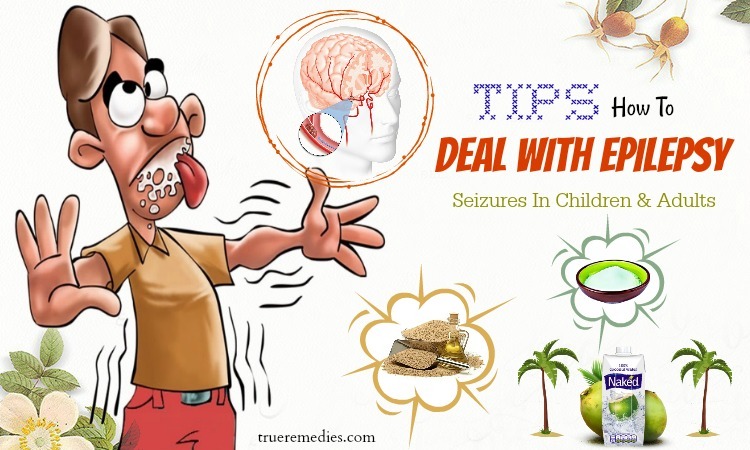Updated: 10/31/2019
Contents
People often think eating disorders are a problem in young adults and teenagers; but, in fact, they are also seen in young children as well. The number of young boys and girls under 12 with this disorder has been increased in recent years. Physical growth and development play an important part in childhood, but eating disorders will result in significant damage to children’s body. So, it is necessary for us to recognize the warning signs of an eating disorder in children 12 and under to find the best solutions.
Causes And Risks Of Children In 12 And Under
The National Association of Anorexia Nervosa and Associated Disorders (ANAD) claimed that an eating disorder affects about 30 million people of all genders and ages in the U.S[1]. It also stated that cases of eating disorders in children are on the rise in America.
The causes of eating disorders remain unknown, but researchers have found out a number of factors that may increase the risk of eating disorder. As eating disorders are heritable[2] [3] [4], children whose siblings, parents, or relatives have an eating disorder are more likely to get this problem than a child coming from a family that does not have a history of eating disorders. Furthermore, children with chronic illness and insulin-dependent diabetes mellitus are at higher risk. Anxiety, depression, and other mental illnesses also lead to the risk of eating disorders[5] [6].
Common Types Of Eating Disorders In Children
Restrictive/Avoidant Food Intake Disorder: It is a common eating disorder in young children[7] [8]. A child with this eating disorder will experience a sensory aversion toward certain foods or lose interest in food. For example, this child may hate the food they once enjoyed. They will vomit or get stomach aches because of certain foods. These restrictions and aversions to food can result in nutritional deficiency and weight loss in children.
Anorexia Nervosa: This eating disorder affects both young boys and girls[9] [10]. Children experiencing from anorexia nervosa always think that they are overweight[11] while they are actually very underweight. Children with this eating disorder always obsess about their food and they try to control their weight badly. They may binge or exercise intensively and then purge. Anorexia nervosa causes a lot of damage to children’s growth and physical health. Therefore, if your child is suffering from anorexia nervosa, you should seek treatment immediately.
TrueRemedies Partner Solutions

Need a Help from the Leading Expert Online, Available 24/7?
They’re all here and ready to answer your questions online or by phone. Keep asking questions until you get the answer you need.
Pica: In this eating disorder, children may consume non-food and non-nutritional substances continuously[12]. They chew on object and substances such as soap, dirt, sand, chalk, hair, and ice.
14 Silent Signs Of Eating Disorders In Children 12 And Under
1. Abnormal Weight Changes
In the growth and development period, children will gain weight predictably; however, if their weight does not gain or they lose a lot of weight problematically, this could be one of the warning signs of eating disorders in children.
Adults and teens are often experiencing significant weight loss if they are diagnosed with eating disorders. That is different from children under 12 who may not experience a significant weight loss but stop gaining the expected weight for their increased height.
But any unexplained weight changes (decrease, increase, plateau) will be a sign of eating disorders.
2. Follow A Specific Meal Plan Or Diet
A child who suddenly shows their interest in a specific meal plan or diet such as a fad diet could be experiencing eating disorder although they said that they are motivated by something instead of weight loss.
Moreover, kids with eating disorders are also scared of certain foods. Furthermore, having eating disorders, some children think a vegan diet can help them lose weight or often skip meals at home[13].
3. Avoid Family Meals
The family meals are not only a great time when a family spends time with each other but also a great thing to encourage good eating habits in children, especially the ones who are under 12 years old. They can do anything to avoid them.
To know whether your child is suffering from eating disorders or not, you should look for the signs that your child insists on eating with his friends or refusing any family meals. Children with an eating disorder also pick the food out of the dinner menu or enjoy the foods labeled unhealthy to children.
4. Miss Food In The Home
There are many different forms of eating disorders. Kids with binge or bulimia eating disorders can hide food in the secret places other people do not find especially their sleeping room. They also secretly eat food when nobody is around.
It is common that binge sufferers often consume abnormally large amounts of food in a secret place and their parents will not know the sudden kid’s weight gain is caused by binging[14].
Other signs of bulimia eating disorder also include misuse of laxatives, self-induced vomiting, and feelings of shame about eating.
5. Exercise Extensively
Kids under 12 with eating disorders may exercise extensively and compulsively. Of course, compulsive exercising itself does not mean a child is having an eating disorder but the two are often seen hand in hand especially in anorexia nervosa eating disorders[15].
In anorexia nervosa, the excessive exercising can begin as a means to gain, lose or control weight but it soon becomes more serious and extreme until the sufferers consider exercise as a way for them to compensate after binge eating.
In this case, my advice is to introduce your child to yoga for kids after seeking medical help[16], a type of fitness which not only controls the weight but also helps them boost their self-esteem.
6. Change In Demeanor
Suffering from eating disorders, children may become more irritable or withdrawn. They always want to isolate themselves from other social groups and their moods often swing suddenly and extremely.
Therefore, to know if your child is getting an eating disorder or not, you should look out for unexplained changes in grades, mood, or their interpersonal relationships[17]. For example, children with eating disorders may start to get poor grades and decreased academic performance even though they normally did well in school. Kids who were always friendly and active may start to isolate themselves by refusing party invitation and avoiding social events. And happy-go-lucky kids start to feel the heavy weight and pressure of the world putting on their shoulders.
7. Focus Too Much On Their Appearance
Does a child spend time in front of the mirror or show his or her interest in weighing himself or herself? If the answer is it is too much, that could be a sign of eating disorders in children and a red flag we have to concern. It is not uncommon for young people who feel unconfident and self-conscious about their appearance but if it becomes more extreme, making them skip pool parties, wear baggy clothing, avoid the beach and connect their appearance with self-worth, it could be a serious problem.
8. Increased Interest In Cooking
This sounds strange but not uncommon for kids with eating disorders to show their interest in cooking and preparing food for others. That behavior may be a reminder from their brain to tell them they need to eat.
It is important for you to look out for other symptoms and signs of eating disorders if you see your child suddenly want to cook and prepare food that they did not do before.
9. Hit The Bathroom After Eating
Children with bulimia nervosa often purge after their meals. They often do it in the places and at the times they can not be caught by parents and someone else. Purging means they force themselves to vomit or abuse diuretics and laxatives[18].
Therefore, to know the problem of your child, you should look for the signs in the bathroom right after each meal.
Furthermore, you can also find tooth decay in your child as the vomiting makes stomach acid destroy the enamel of their teeth. Another sign of an eating disorder bulimia is acid reflux and throat problems caused by excessive vomiting. Moreover, ongoing dehydration and constipation may also indicate that they are suffering from eating disorders caused by laxative abuse.
10. Obsessed With Food Ingredients
A child with eating disorders could show his or her obsession with food ingredients. They may disguise the eating disorders as their focus on organics, healthy or against processing and GMOs. Furthermore, some children with this condition restrict all bad foods that make them gain weight. They divide foods into several groups: impure or pure, unhealthy, or healthy. In the end, their diet becomes too restrictive to be healthy.
11. The Night Eater
Some children suffering from eating disorder diet who want to control the weight often diet successfully all day; however, they have trouble at night. This is because they feel alone at night and can not control the thought of night eating. The result is they often binge on unhealthy and junk food in the privacy of the room at night.
Therefore, it is important for you to look out for the missing food especially at night without explanation. This sign is often seen in children with binge or bulimia eating disorder.
12. Feel Difficult To Eat In Front Of Others
Children with eating disorders often have to struggle to eat food in a healthy way. They will find a hard time eating in front of people. So it explains the reason why a child with an eating disorder often hide the foods they eat.
13. Struggle To Feel Warm Even Though It Is Hot Outside
Fat is not totally bad. There are some good points of fat. One of which is to keep your body war. However, if you do not have adequate nutrition for your fat cells, you will feel cold although it is hot outside. That could be one of the common signs of eating disorders in children you can look out for.
14. Frequent Stomach Ache
Nutrient deficiency and abnormal eating will affect the gastrointestinal system. The symptoms are not the same from person to person but the common signs include acid reflux, cramps, and constipation.
Treating Eating Disorders In Children 12 Or Under
To help eating disorders among young children, especially the ones who are 12 or under, the combination of different components is crucial. One of them is to help your child regain their weight because it is the way to restore the child’s nutritional and physical health.
Caretakers and parents also play an important role in helping children with an eating disorder. Parents who blame themselves for their child’s problem will make the problem get worse. So, parents should be more empowered and confident to help their children to overeating disorders.
The behavioral interventions are also recommended as an effective solution to help children exposed to foods they hate and help them build a healthy relationship with eating.
If you have a child with an eating disorder, it is important to make an appointment with your child’s nutritionist, pediatrician or other mental health professional to receive the support and advice.
Many symptoms and signs of eating disorders in children 12 or under won’t show up until they become serious but you can keep an eye out for any abnormal and sudden changes in weight loss, mood, and concern about their appearance, diet, and calories. We hope that you will find useful information in this article of Trueremedies.com. Any questions can be left in the comment section and we will answer them as soon as we can.

